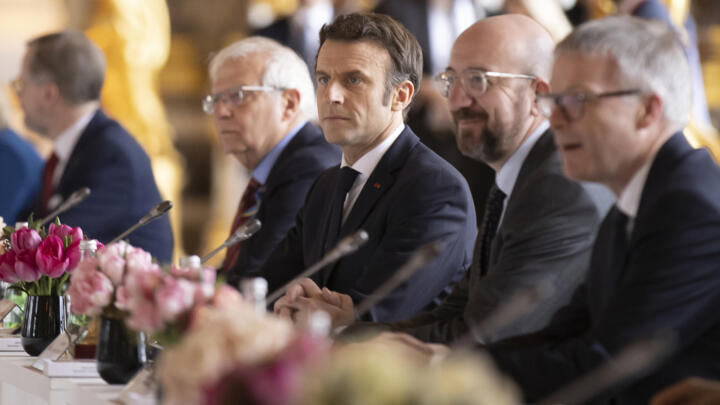European Union leaders are gathering Monday in Brussels to tackle growing concerns about President Donald Trump’s aggressive trade policies and his demands for increased military spending. The meeting comes at a tense time, as Trump’s recent trade restrictions on Canada, Mexico, and China have left European countries worried they might be next.
Since returning to the White House in January 2025, Trump has taken a tough stance against traditional U.S. allies. His recent trade tariffs have already disrupted global trade, making European leaders nervous about protecting their own economies from similar measures.
The meeting will bring together leaders from all 27 EU countries at a historic Brussels palace. European Council President Antonio Costa wants to keep the atmosphere relaxed, calling it a “retreat” instead of a formal summit. This approach lets leaders speak freely without the pressure of making immediate decisions.
Two important guests will join the talks: NATO’s head Mark Rutte will be there for lunch, and Britain’s Prime Minister Keir Starmer will attend dinner. Their presence shows just how important these discussions are for Europe’s future.
Trump’s recent actions have particularly worried European leaders. He’s been pushing hard for European countries to spend more on their militaries and depend less on U.S. protection through NATO. Adding to these concerns, Trump recently demanded that Denmark hand over Greenland to the United States, even hinting at possible economic penalties or military pressure if they refuse.
In response to these threats, EU leaders need to make some tough decisions about their military spending. Costa sent a letter to all participants stressing that Europe must become stronger and more independent in defending itself.
But paying for increased military spending is a major sticking point. Many EU countries are already struggling with tight budgets. Some countries, like France and the Baltic states, want the EU to borrow money together to pay for military upgrades. Others, including Germany and the Netherlands, strongly oppose taking on shared debt for military purposes.
To break this deadlock, some diplomats suggest a middle ground: using borrowed money for military loans instead of direct funding. This could help countries upgrade their defenses while keeping careful control of spending.
The first topic of Monday’s talks will focus on dealing with the U.S. and other global powers. Leaders must figure out how to maintain good relations with America while protecting European businesses and security interests. It’s a difficult balance, especially with Trump’s unpredictable decisions straining long-standing friendships between nations.
